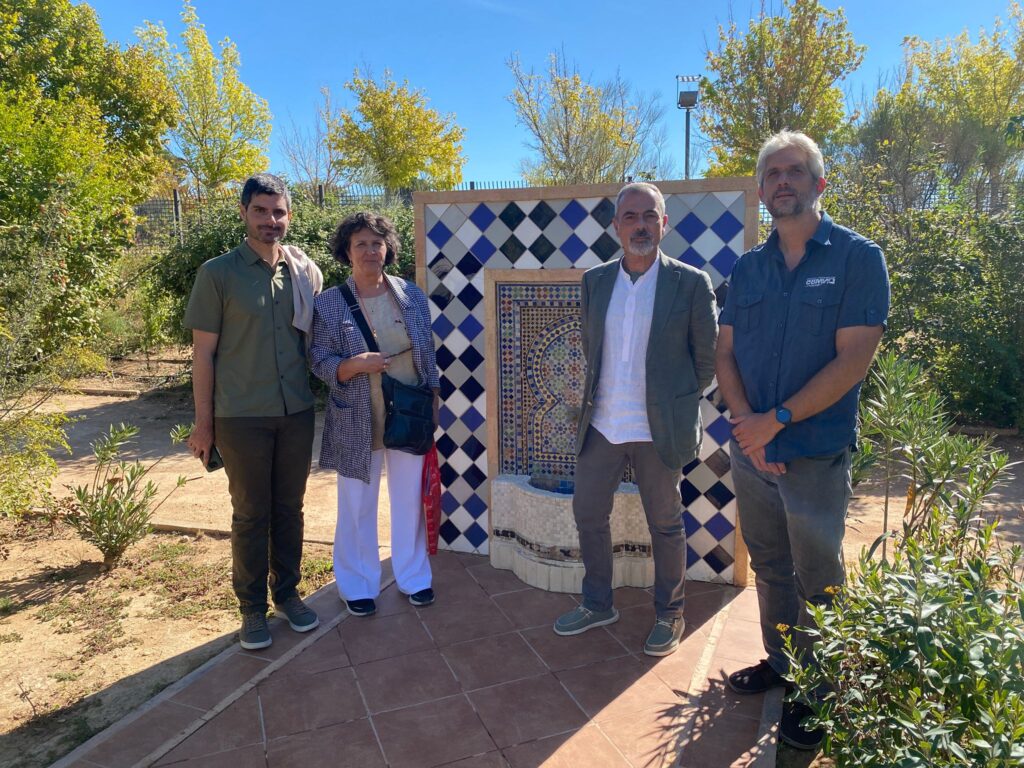Communications
New collaborations for FUNCI in Castilla-La-Mancha
The toponymy is a first indication of the importance of the Andalusian past of this territory. For example, the toponym ‘Albacete’ comes from the Arabic al-Basit, the most widespread translation of which is ‘plain’. It is known, thanks to Arabic sources, to have existed at least since the 12th century.
The Botanical Garden of Castilla-La Mancha and the Foundation of Islamic Culture seal a collaboration agreement
Last October, the team of the Islamic Culture Foundation (FUNCI) had the opportunity to travel to Albacete with the aim of sealing a collaboration agreement with the Botanical Garden of Castilla-La Mancha (JBCLM) to promote knowledge about the Islamic legacy, especially that linked to botany and its applications in the territory of the Iberian Peninsula.
This institution is under the auspices of Albacete City Council, the Provincial Council of Albacete and the University of Castilla-La Mancha. Although it is one of the youngest botanical gardens in Spain, it has an interesting collection of samples of natural habitats following ecological and landscape criteria. It houses forty regional ecosystems of Castilla-La Mancha with many species unique in the world and has collaborated in projects for the recovery and reinforcement of flora populations (such as the Phoenix Project, 2014) and with endangered species, such as the Ocaña Mesa stonechat (Vella pseudocytisus subsp. pseudocytisus) or the Abenuj mountain rabogato (Sideritis serrata), among others.
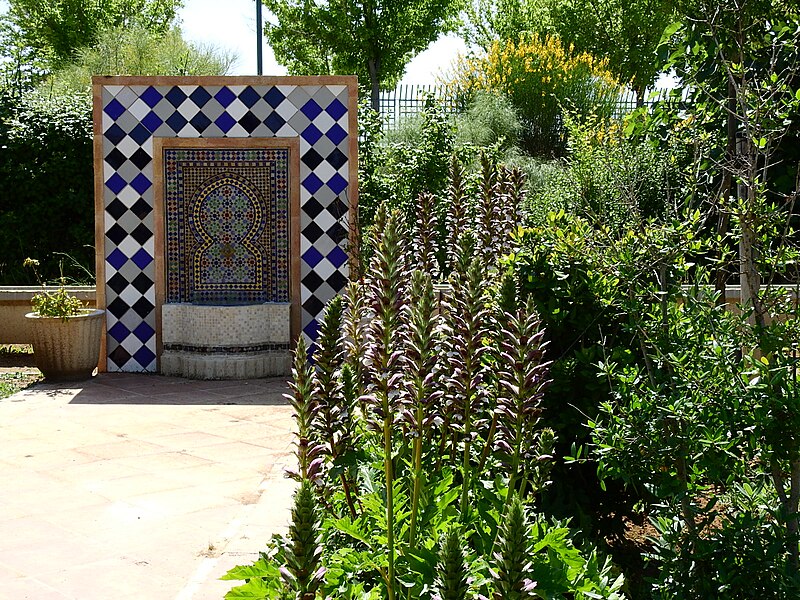
The Institute of Albacete Studies (IEA) and the archaeological site of La Graja (Higueruela)
During the presence of our team in the province of Albacete, the collaboration initiated in April of this year with the Institute of Albacete Studies (IEA) also continued to make progress. A technical visit was made to the archaeological site of La Graja (Higueruela, Albacete) together with the scientific directors of the project, Pedro Jiménez, Jose Luis Simón and José María Moreno Narganes, as well as the mayoress of the municipality, Isabel Martínez, and the councillor for Culture and Tourism, Ángela Lencina.
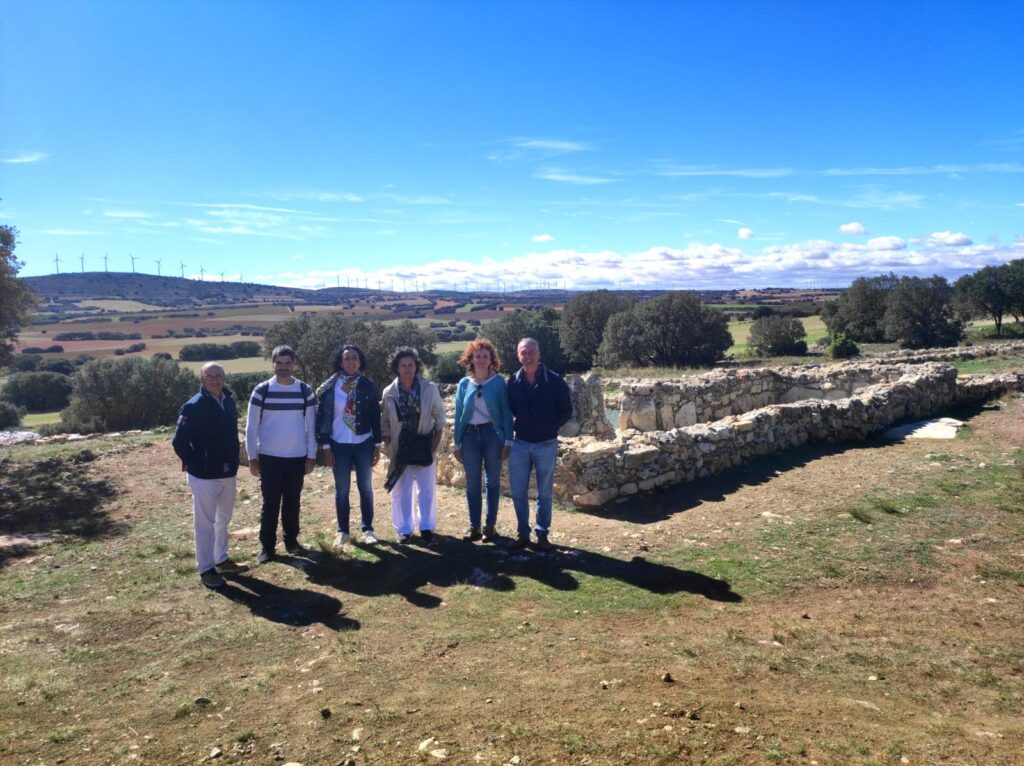
La Graja is a site from the Andalusian period (11th century) located in the municipality of Higueruela, about 3 km from the town, at a point located between the Corredor de Almansa, the Altos de Chinchilla de Montearagón and the southern sector of the Júcar valley as it passes through the province of Albacete. Thanks to archaeological studies, the history of a farming community from al-Andalus that settled in this valley a thousand years ago is being uncovered. It was here that these people began to farm and graze in the dry lands of La Mancha, which is now revealing agricultural practices and ways of life that had been neglected by studies. Furthermore, the farmhouse of La Graja was the site of the first mosque in Albacete and the first rural mosque in the autonomous community of Castilla-La Mancha.
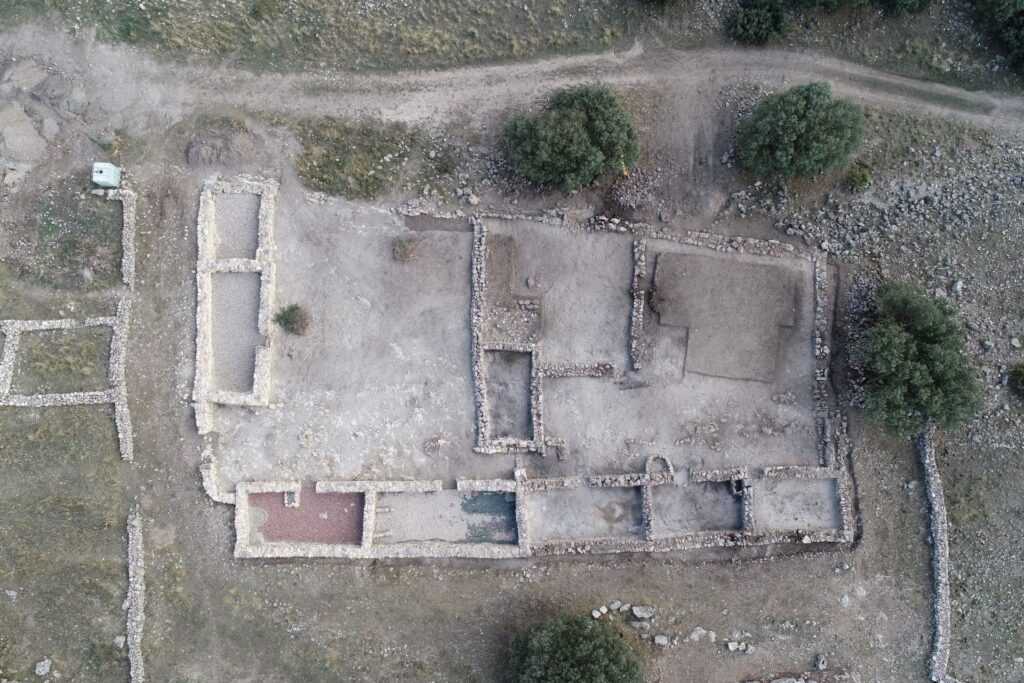
Likewise, the La Graja team and the members of FUNCI held a meeting with the director of the IEA, Antonio Selva, in the recently inaugurated headquarters of the institution, the Chalé Fontecha, in the city of Albacete. Founded in 1977, the Institute of Albacete Studies ‘Don Juan Manuel’ is an autonomous body of the Provincial Council of Albacete, attached to the Spanish Confederation of Local Studies Centres and the Spanish National Research Council. Its purpose is the defence, study, research and dissemination of the heritage and resources of the province of Albacete. In this way, thanks to these contacts, FUNCI is having the opportunity to collaborate in various proposals for the revaluation of elements of the Islamic legacy of the province.
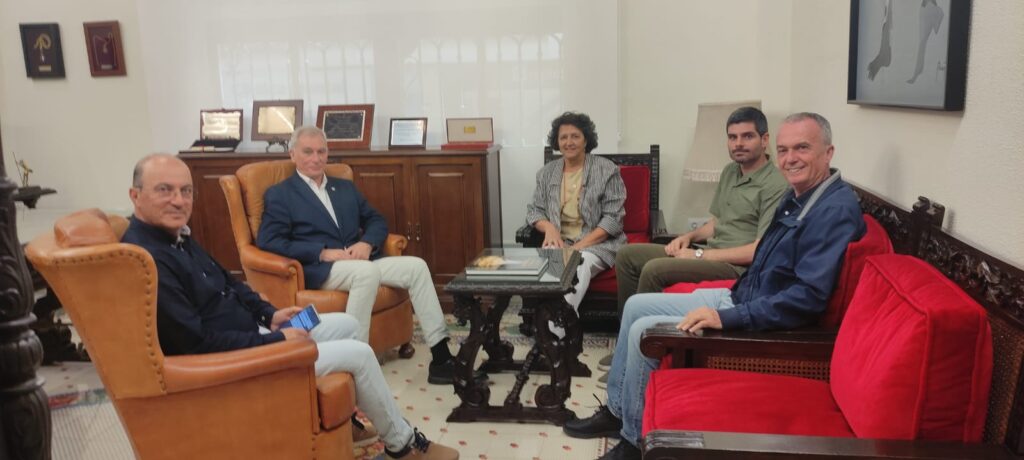
These new agreements and proposals are in line with the objective of the Islamic Culture Foundation (FUNCI) to safeguard and learn about the traces of Islamic civilisation on the Iberian Peninsula. A goal that cannot be achieved without the involvement of other actors, which makes it possible to join forces. After the inauguration in 2021 of the Centre for Studies on Islamic Toledo (CETI), FUNCI continues to work for a better understanding of the territory of Castilla-La Mancha, and thanks both institutions for their welcome and willingness.
This article is available in Español


